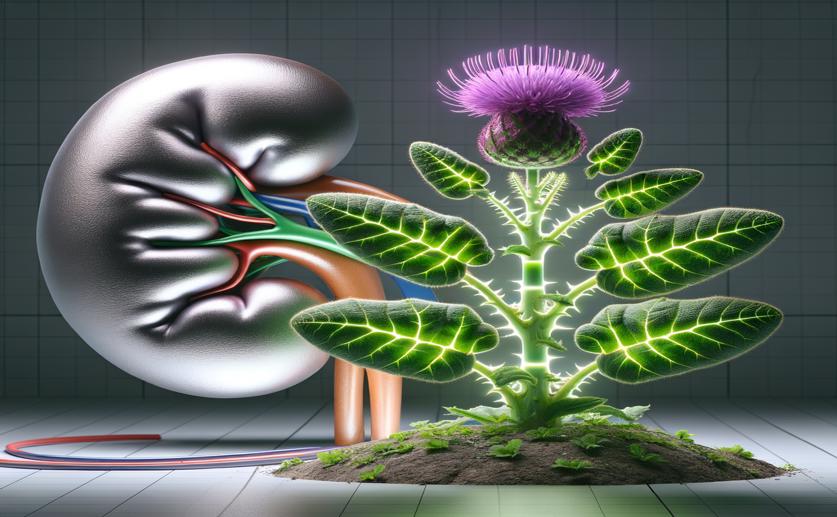
Kidney Protection Benefits of Milk Thistle Against Aluminum Damage
Jim Crocker
31st March, 2024

Image Source: Natural Science News, 2024
Key Findings
- In an Alexandria University study, silymarin and its nanoparticle form reduced kidney damage from aluminum
- Silymarin nanoparticles were more effective than silymarin alone in protecting kidneys
- The study suggests nanotechnology could enhance natural treatments for aluminum toxicity
References
Main Study
1) Nephroprotective effects of silymarin and its fabricated nanoparticles against aluminum-induced oxidative stress, hyperlipidemia, and genotoxicity.
Published 28th March, 2024
https://doi.org/10.1002/tox.24223
Related Studies
2) Aluminum Poisoning with Emphasis on Its Mechanism and Treatment of Intoxication.
3) Boron Compounds Exhibit Protective Effects against Aluminum-Induced Neurotoxicity and Genotoxicity: In Vitro and In Vivo Study.



 3rd February, 2024 | Jenn Hoskins
3rd February, 2024 | Jenn Hoskins